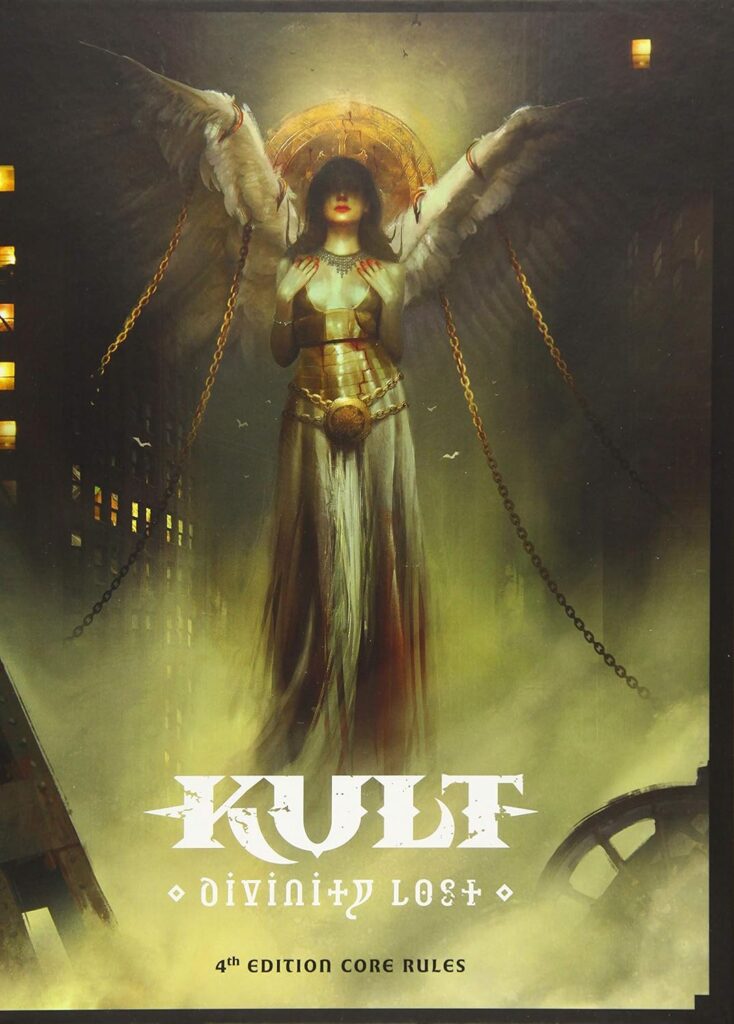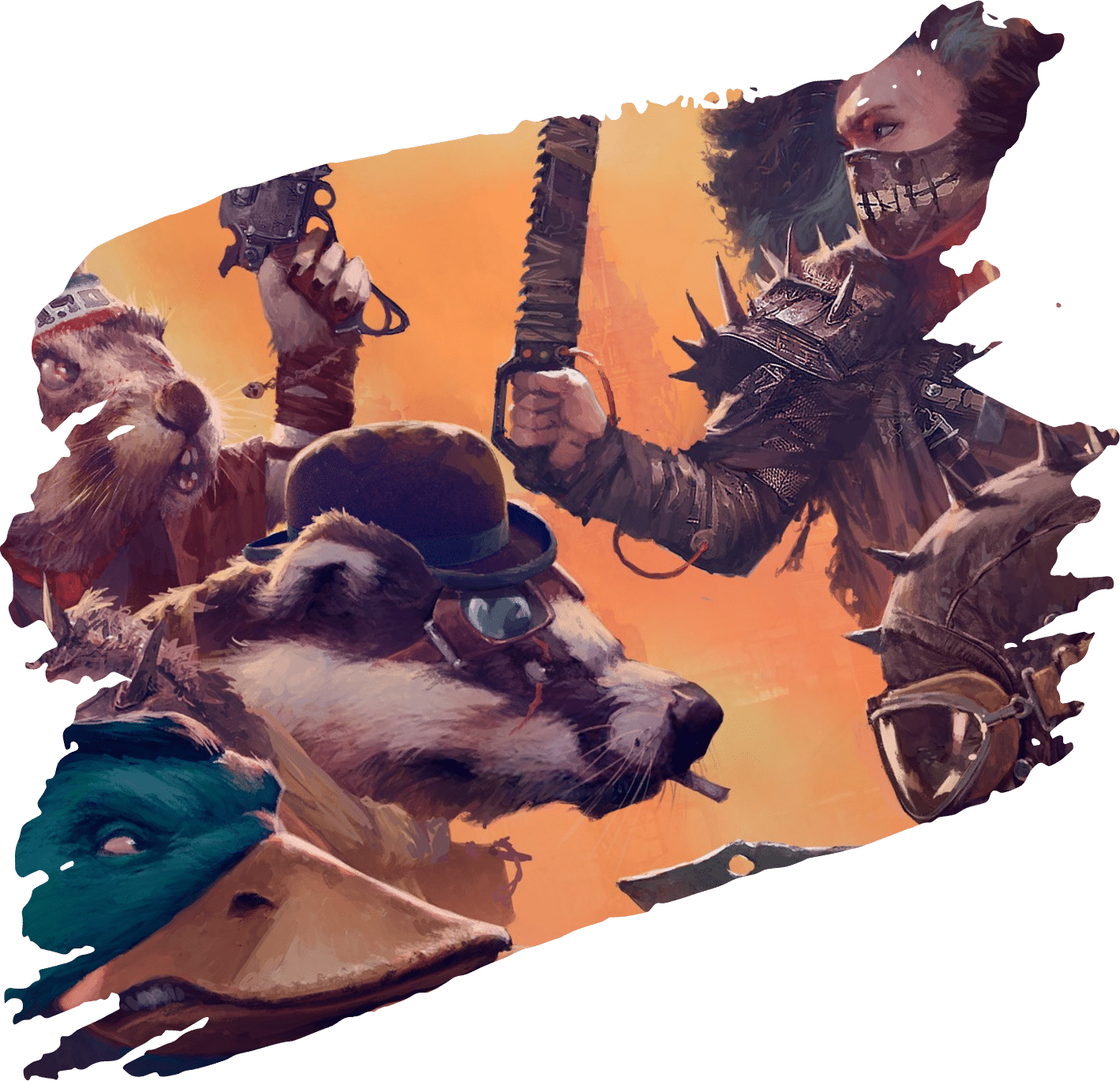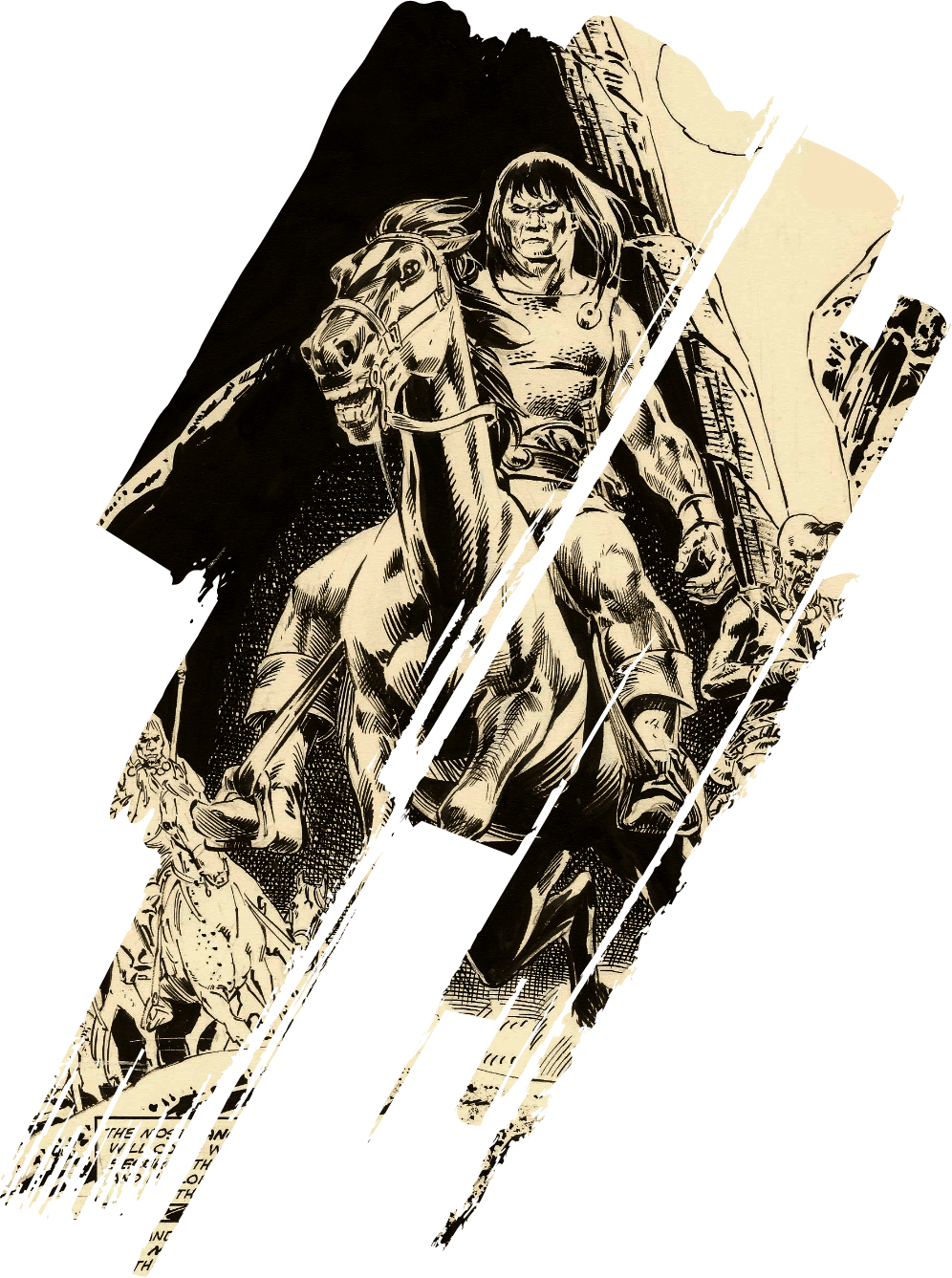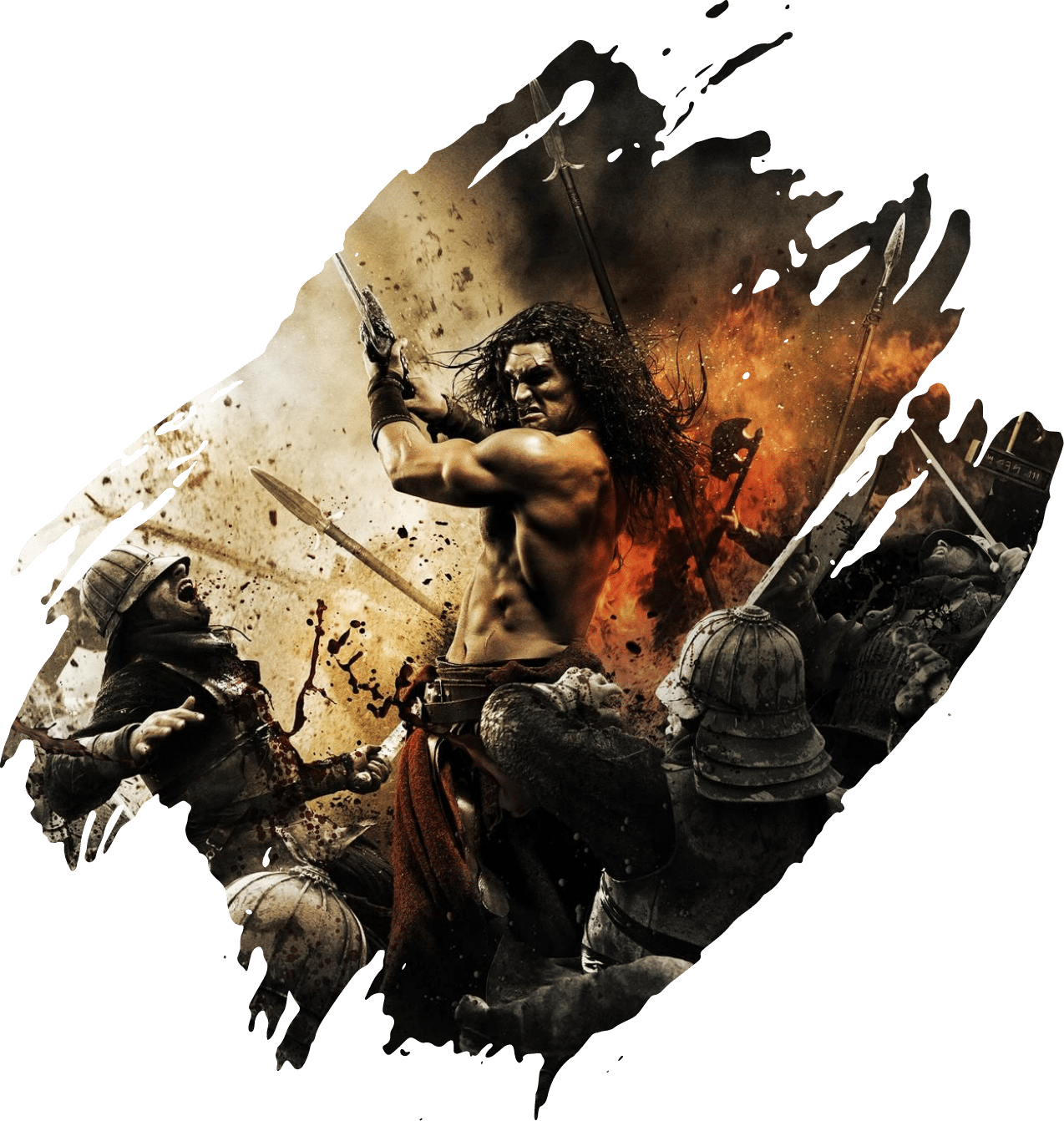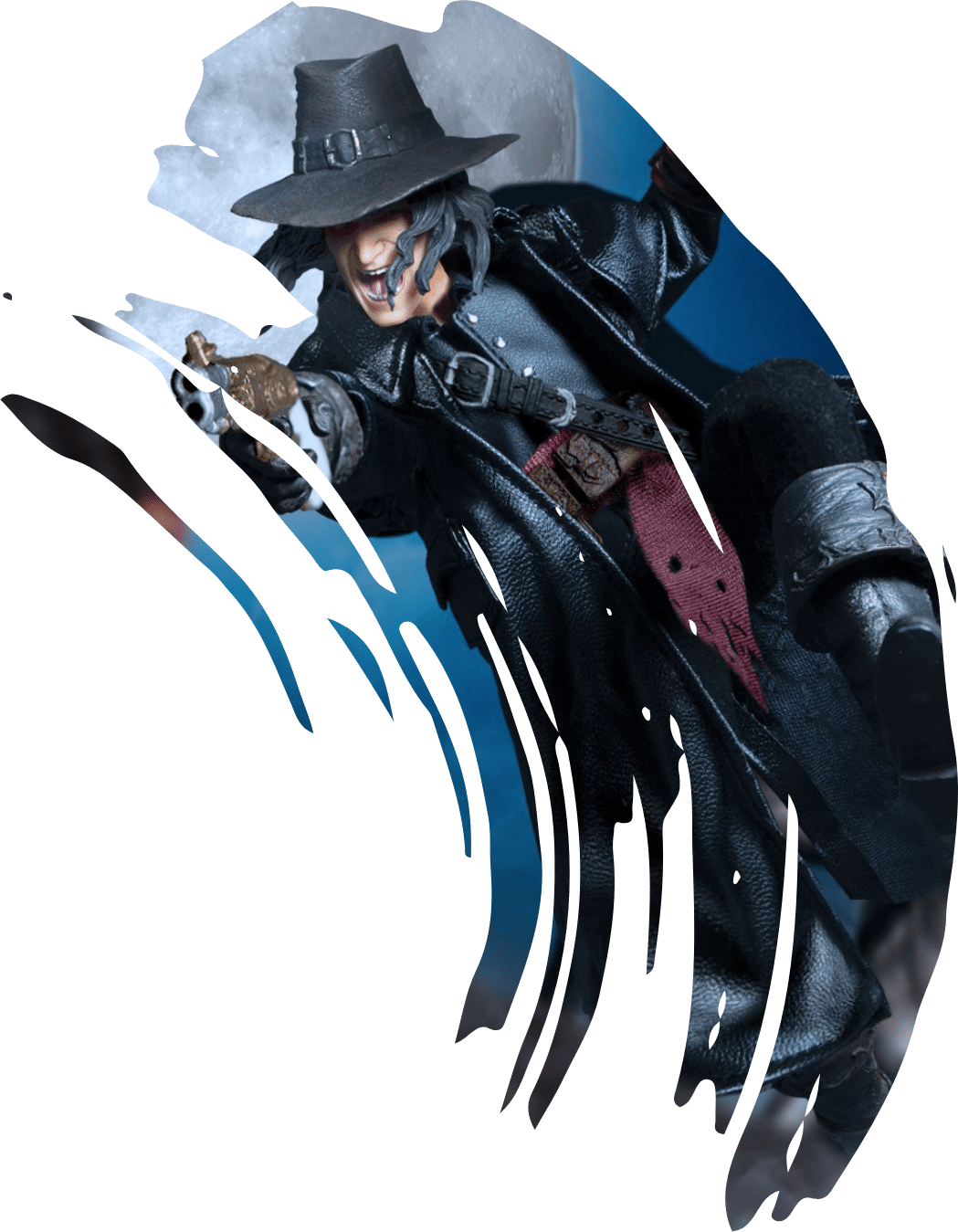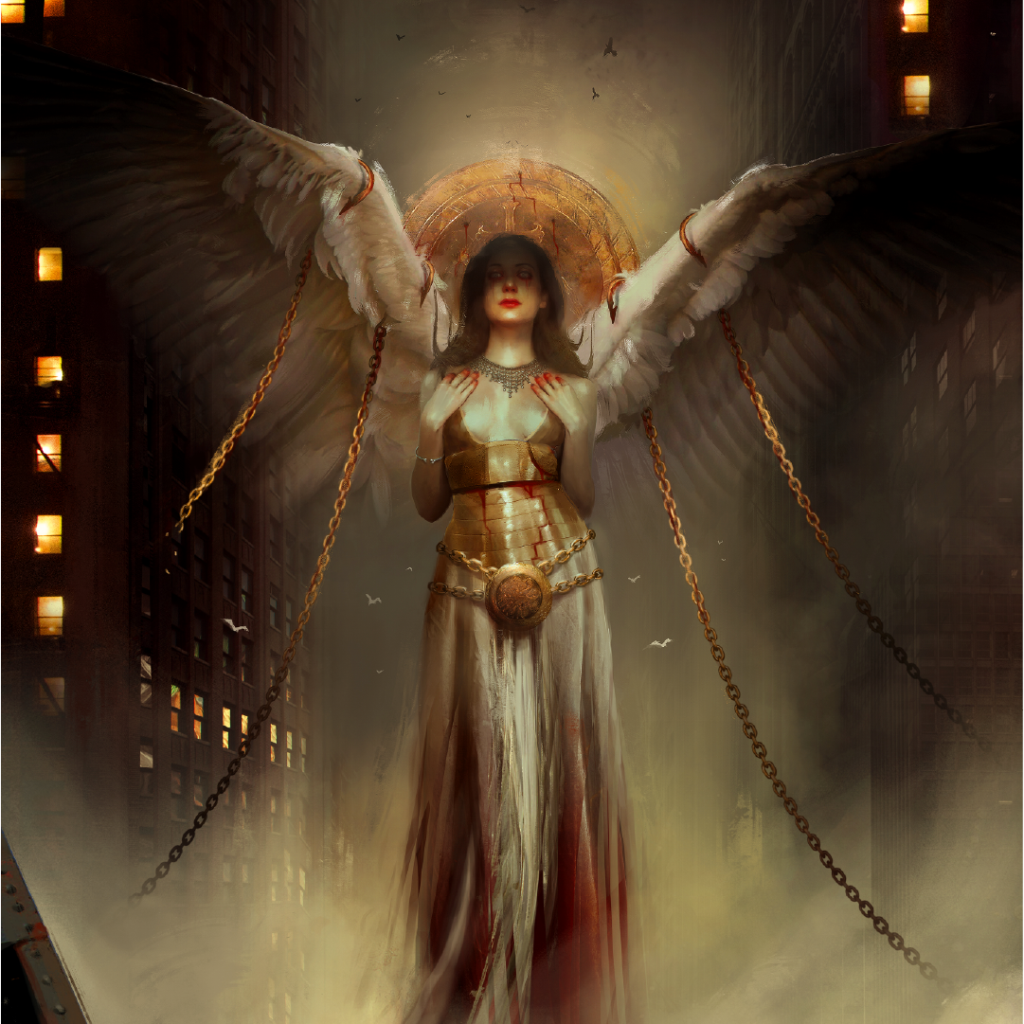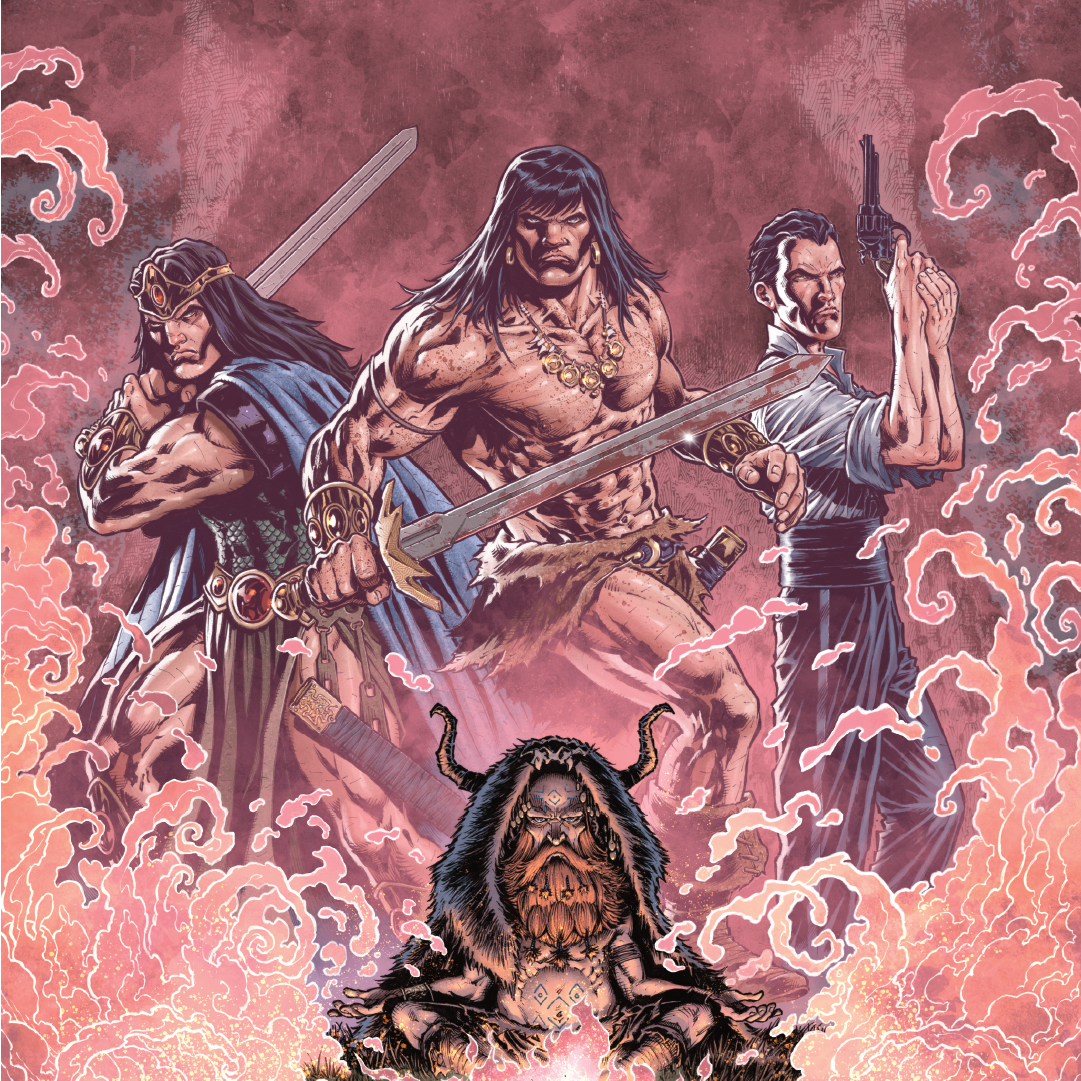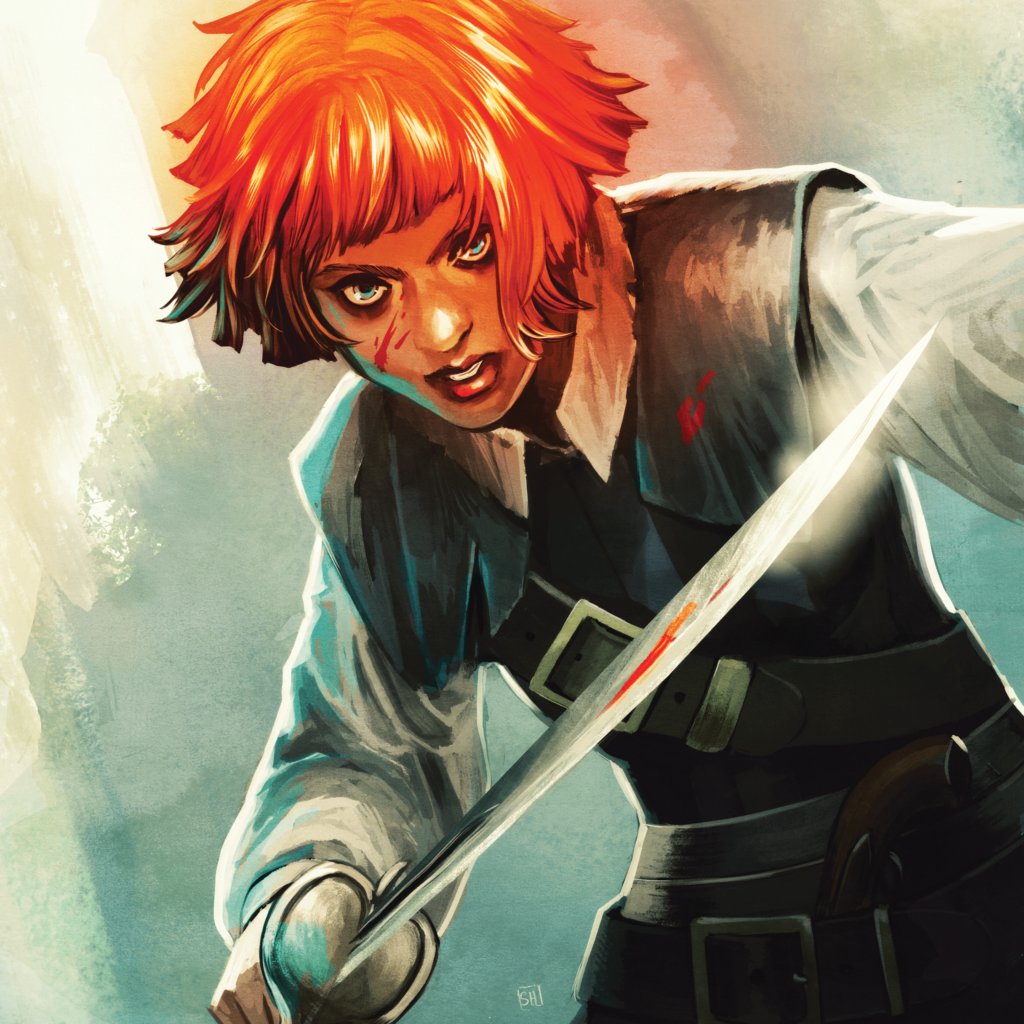Your phone buzzes. Another notification, another headline, another tweet that makes your blood boil.
But what if that rage isn’t really yours?
What if every swipe, every click, every moment of mindless consumption is actually part of an elaborate prison system designed to keep you docile, to keep you blind, to keep you human?
This is the terrifying premise at the heart of KULT: Divinity Lost, where every digital distraction and social media addiction is corroding your attention span while maintaining the walls of a prison designed to contain something far more dangerous than your human self: your true, divine nature
The Philosophical Foundation of KULT that Goes Beyond Surface Horror
In the landscape of horror roleplaying games, it’s easy to become jaded with the familiar tropes: ancient evils awakening, supernatural creatures stalking the shadows, or cosmic entities threatening our reality. But what if the very fabric of reality itself was the lie? What if the truth was that we are all divine beings, deliberately imprisoned in a false world by an entity that merely pretends to be God?
This is where KULT: Divinity Lost begins to separate itself from its contemporaries in the horror RPG space. While other games might dabble in hidden truths, KULT fully embraces Gnostic philosophy and transforms Plato’s allegory of the cave into a modern psychological horror story. Those shadows on the wall are far more than flickering candlelight in our world, though; they’re the endless scroll of social media, the 24-hour news cycle, the culture wars that consume our attention. All of it orchestrated by the Archons, servants of the false god known as the Demiurge, whose influence permeates every aspect of our perceived reality.
The Archons are the fundamental forces that maintain our collective delusion, so deeply woven into the fabric of our existence that they manifest in the very attributes on your character sheet, modeled after the Sephiroth symbol. This is where KULT distinguishes itself from the supernatural masquerade of World of Darkness or the cosmic horror of Lovecraftian games. While Call of Cthulhu might confront you with humanity’s cosmic insignificance, and Vampire: The Masquerade might explore the horror of losing your humanity, KULT poses a far more disturbing question: What if being “human” was itself the horror?
The game transforms traditional psychological horror through this lens. Every step toward enlightenment requires facing external deceptions while also facing your complicity in maintaining them. The nightmarish entities you encounter might be ancient beings from before humanity’s fall, or they might be manifestations of your own suppressed divinity – dreams given flesh, madness taking form, the products of your own trapped divine nature struggling to break free. Even death becomes not an end but another potential awakening, another layer of illusion stripped away.
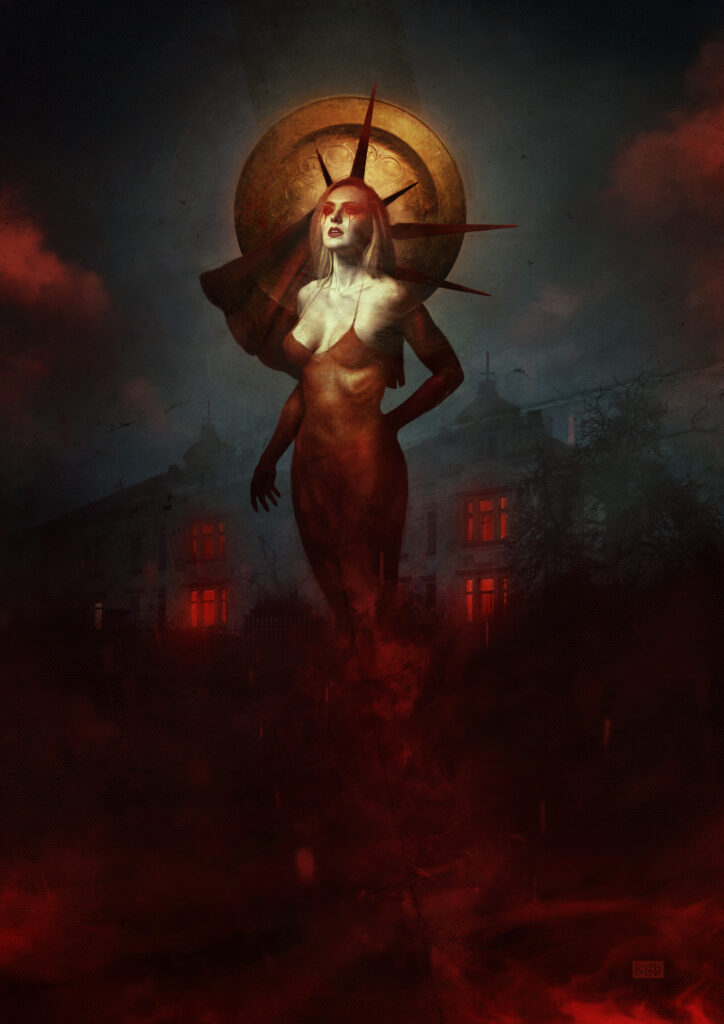
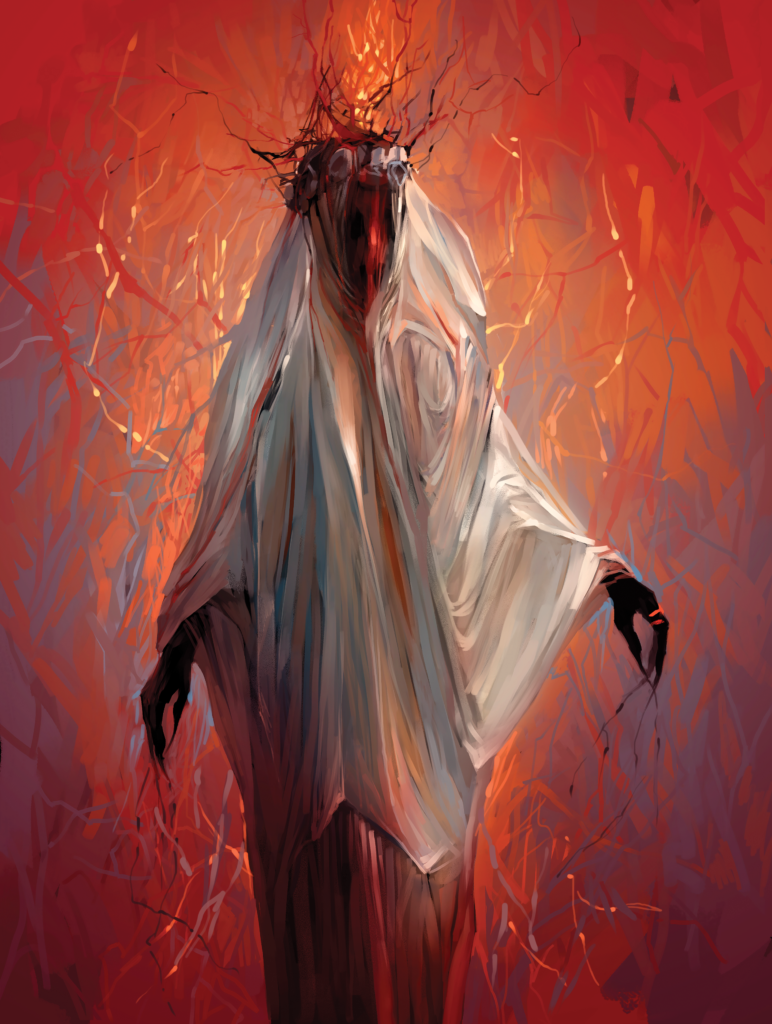
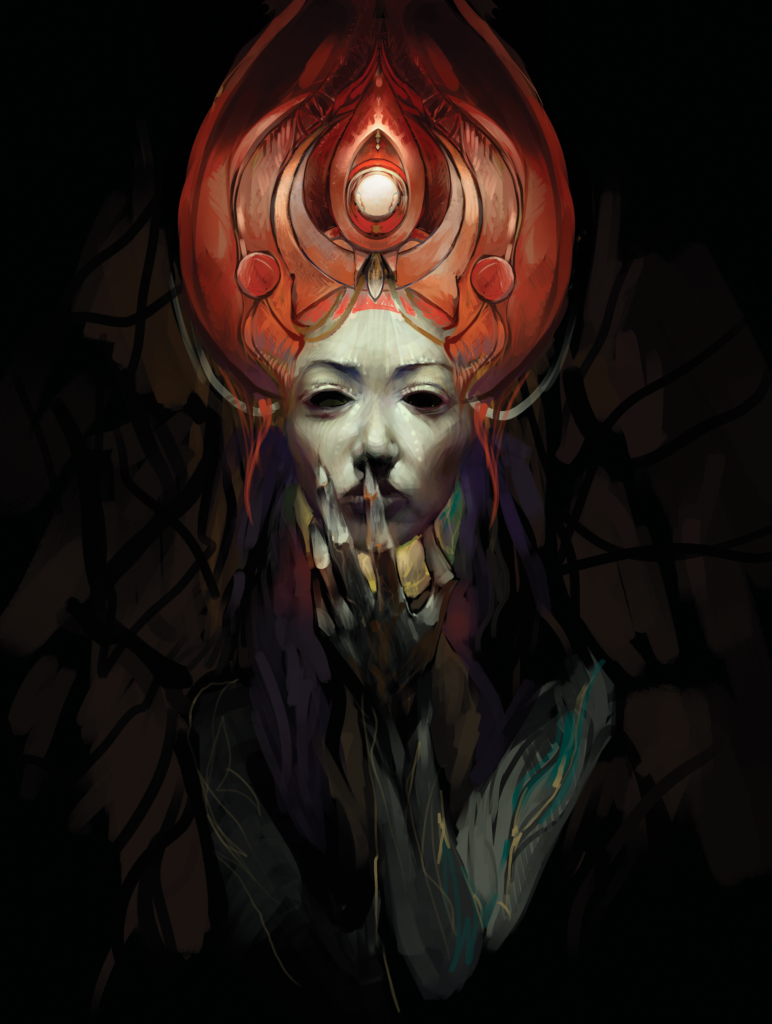
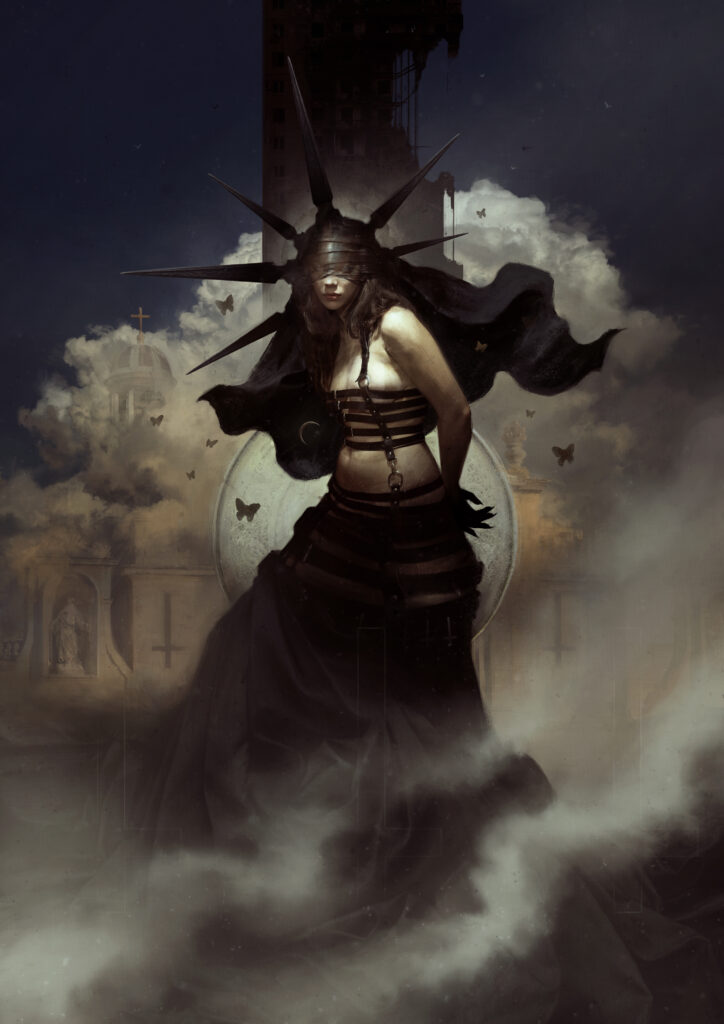
The Mechanics of Seeing Through the Illusion of Kult
KULT: Divinity Lost’s mechanical systems directly mirror its themes through innovative character progression and reality-warping rules. The game introduces three distinct states of being that shape both character creation and story development: Sleepers, living in complete ignorance of truth; the Aware, who’ve glimpsed behind reality’s curtain; and the Enlightened, who actively participate in reality’s secret wars.
The game’s mechanical core revolves around the “See through Illusion” move, triggered when characters encounter places where reality grows thin or face moments of extreme shock. This system creates organic opportunities for character evolution without relying on traditional experience points or level progression. Instead, growth comes through the accumulation of disturbing insights and reality-breaking experiences.
Character disadvantages in Divinity Lost serve a unique mechanical purpose, directly tethering players to the darker reality beneath our own. Each flaw potentially opens windows to greater understanding, turning traditional character weaknesses into doorways to enlightenment. This builds a mechanical framework where character flaws become essential tools for perceiving and interacting with the true nature of reality.
Perhaps most innovatively, the system scales seamlessly between different intensities of horror. Campaigns can maintain the subtle, psychological dread of True Detective’s first season, where reality’s breaks appear in small, unsettling ways. Or they can plunge into the extreme visceral horror of Hellraiser, where characters physically traverse different dimensions of existence. This flexibility emerges naturally from the interplay between character archetypes, advantages, and disadvantages, rather than requiring different rule sets for different styles of play.
Through these mechanical innovations, Divinity Lost creates a system where rules and narrative work in concert to unveil reality’s true nature, allowing players to experience their character’s journey from ignorance to enlightenment in a way that feels both natural and deeply unsettling.
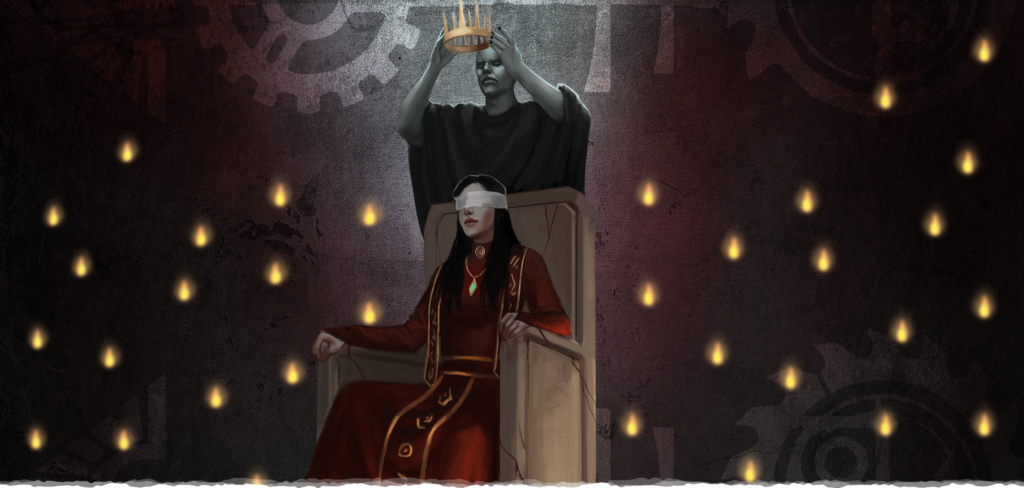
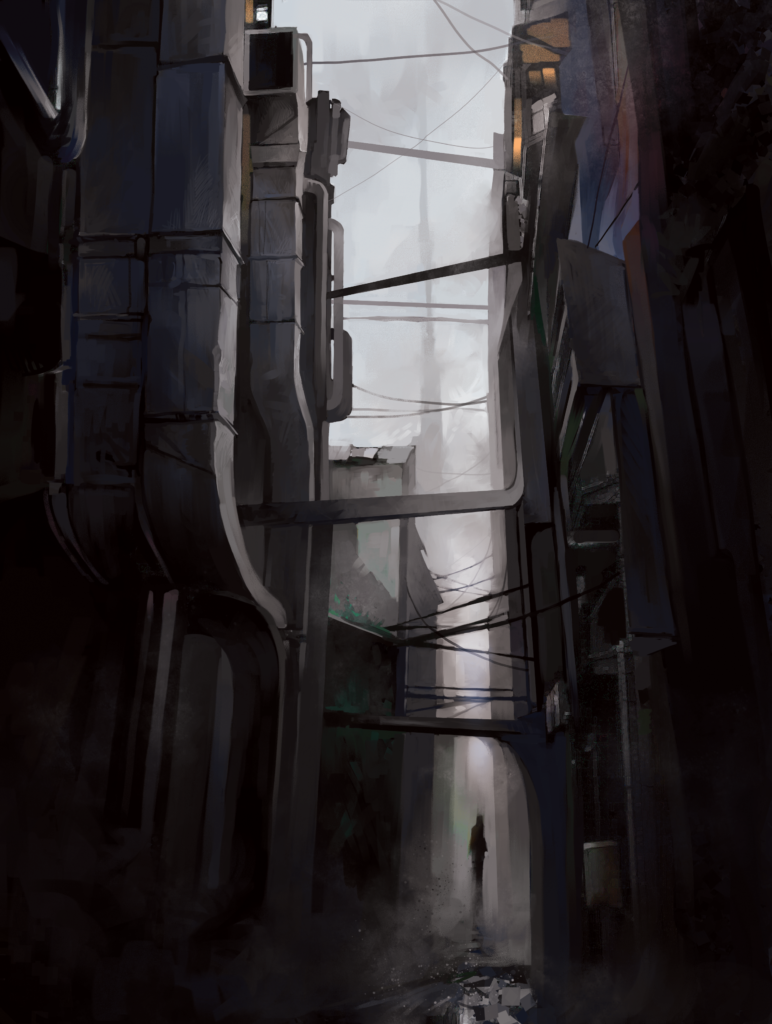
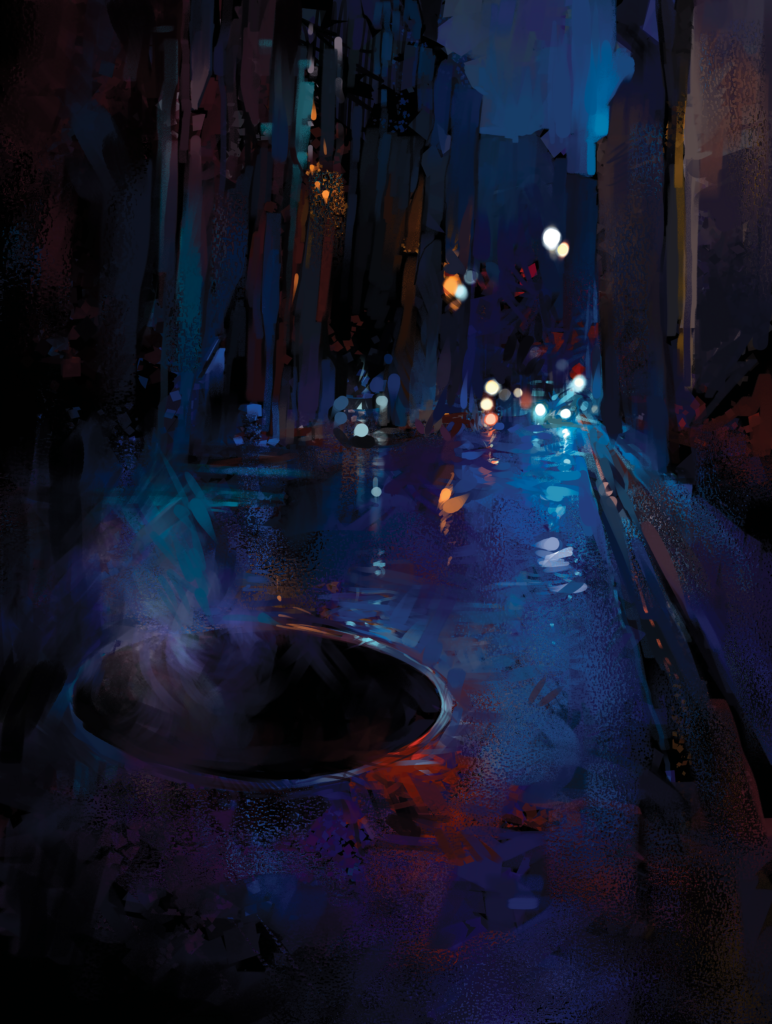
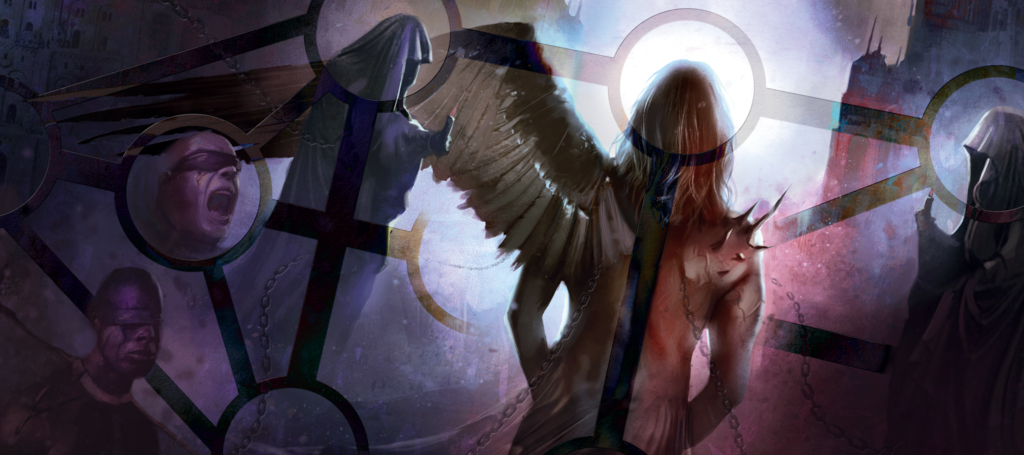
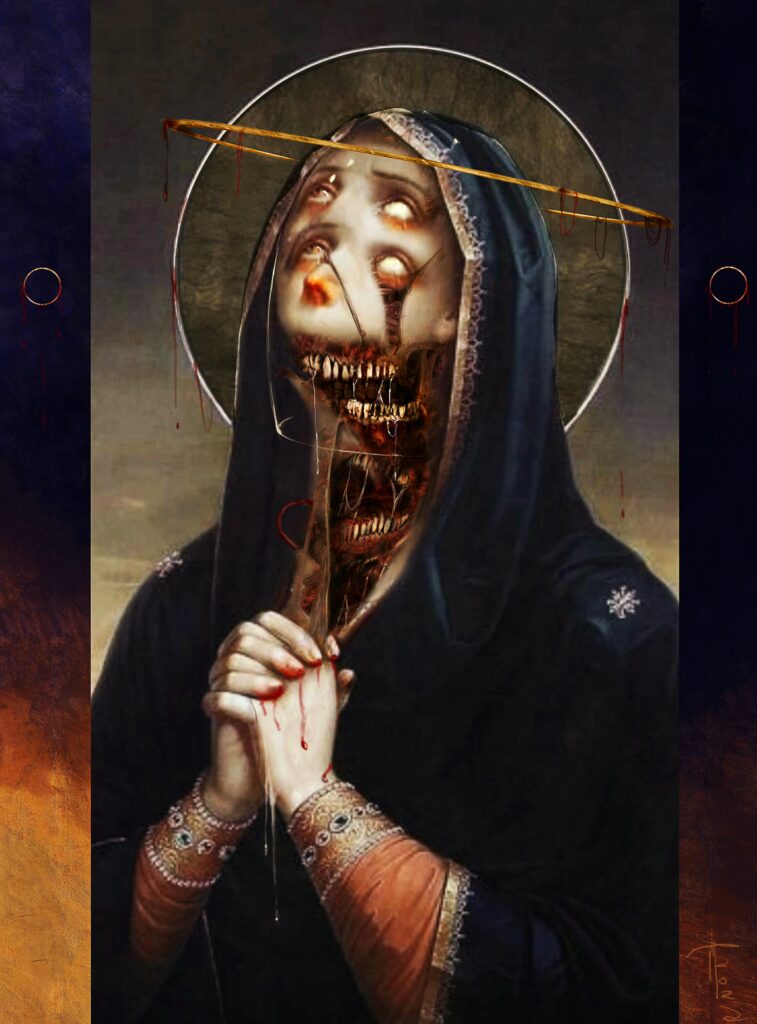
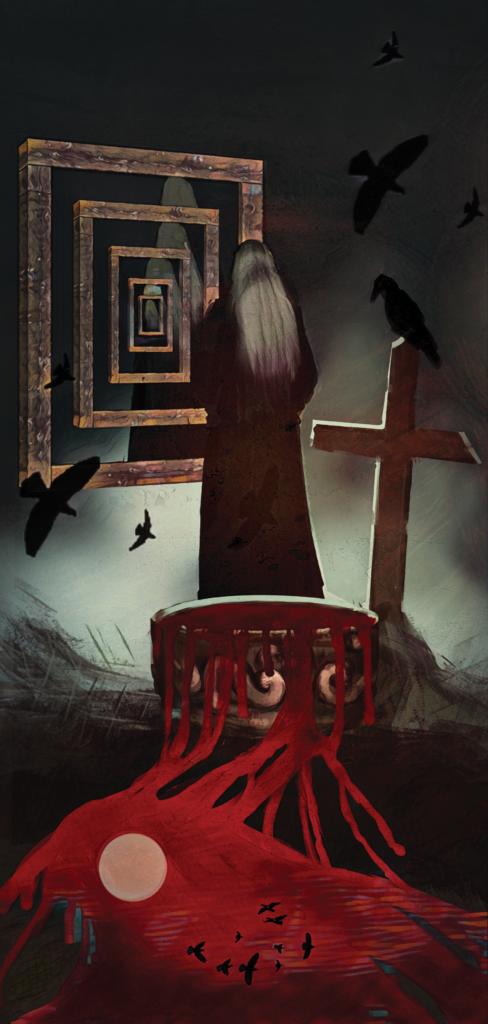
How Kult Puts Moral Complexity in Practice
KULT scenarios often force players to confront impossible choices that mirror the game’s deeper truths. Picture a professional discovering reality’s true nature while watching their family relationships crumble. The game’s Stability system transforms this common narrative into mechanical weight – characters can only maintain their mental health through meaningful scenes with important people in their lives. Each step toward enlightenment threatens these essential connections, creating a devastating spiral where greater understanding actively erodes a character’s foundation of sanity.
Successful stories emerge from focusing intensely on what matters to each character, maintaining what the community calls “mad logic” – a consistent framework where surreal elements serve character development rather than mere strangeness. The game’s Dark Secrets system provides both narrative and mechanical tools for this exploration, while disadvantages that might be avoided in other games become gateways to supernatural insight. Players who embrace damaged, outcast characters through Archetypes like the Broken or the Cursed find their struggles opening doors to greater understanding.
This mechanical framework creates opportunities for profound character evolution. A character might discover how different social environments shape multiple versions of themselves, revealing identity itself as another form of illusion maintained by class and cultural constructs. As characters progress, they might even advance into entirely new Enlightened archetypes, though this transformation often comes at great personal cost
Your Path to Enlightenment Begins
Remember that nightmare where you realized everyone around you was wearing a mask? In KULT: Divinity Lost, ripping off that mask doesn’t reveal a monster – it reveals a mirror. And what’s looking back at you isn’t human at all. It never was.
The archives of occult knowledge are filled with warnings: “Do not pursue this knowledge.” “Some truths are better left unknown.” “Ignorance is bliss.” KULT: Divinity Lost asks you to ignore every warning, to chase every forbidden truth, to embrace every uncomfortable revelation – not because you’re brave, but because you’re finally ready to admit that the comfort of ignorance has become unbearable.
The truth awaits in KULT: Divinity Lost, where every answer reveals new questions, and every revelation brings both power and price. Your journey toward enlightenment begins now.
